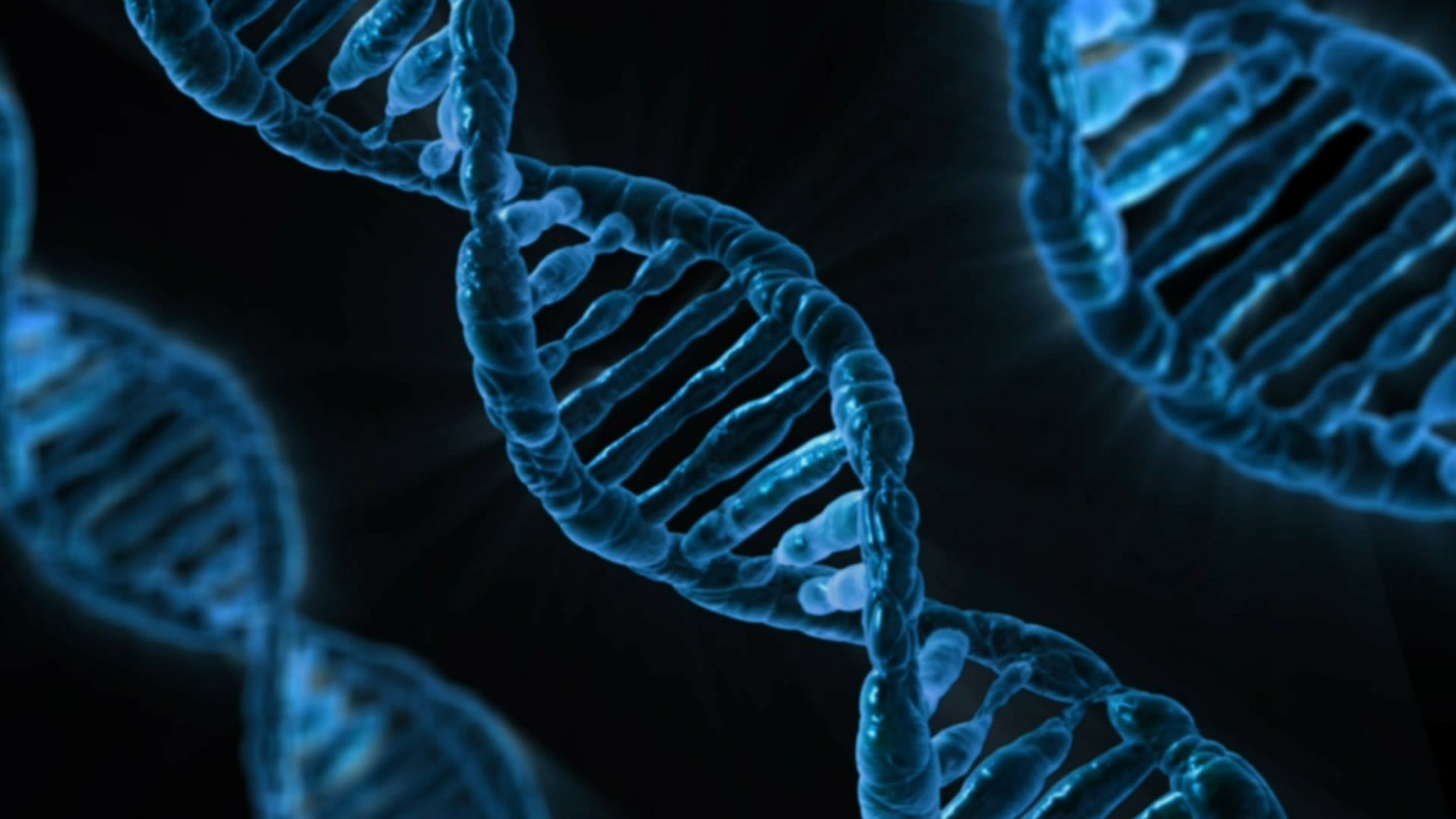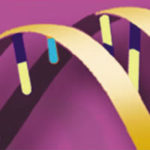James Watson On “Genetic Losers”
 I’m thrilled that Christie’s decided to auction off James Watson’s Nobel prize on a Thursday, DNA Science posting day! I’ve got some great quotes to add to the chatter.
I’m thrilled that Christie’s decided to auction off James Watson’s Nobel prize on a Thursday, DNA Science posting day! I’ve got some great quotes to add to the chatter.
Dr. Watson shared the Nobel prize with Francis Crick in 1962 for deducing and describing the three-dimensional structure of DNA, assembling clues from the experimental findings of many others. He went on to launch the human genome project at the National Institutes of Health, and is today Chancellor Emeritus of the Cold Spring Harbor Laboratory.
But Dr. Watson is also known for outrageous comments that insult anyone with dark skin, a fondness for the same sex, mental illness, a genetic disease, or two X chromosomes. Laura Helmuth excellently summarizes some of his comments at Slate.
I first heard Dr. Watson speak when I was in grad school, and too sleep-deprived to remember anything. Shortly after Francis Crick died in 2004, I decided to interview Dr. Watson while he was still around. So I spent 14 hours on Amtrak during a single day going from Schenectady, New York to Cold Spring Harbor Laboratory on Long Island, when I was writing for The Scientist. He was prompt, polite, and charming. And then I asked my first question.
“Dr. Watson, which do you think was more significant, deducing the structure of DNA, or sequencing the human genome?”
He sat back, smiled, and stroked his chin, seemingly deep in thought. It wasn’t a bad question to start. A pause, then …
“Ricki, do you consider yourself a girl or a woman?”
I never could get him to answer questions about science seriously, and I wonder now if that’s why I can’t find my piece at The Scientist website. I might have killed the story, which was to be a Q+A, before my editor had a chance to do so. And his comments were too misfired to make it into my human genetics textbook.

I heard Dr. Watson again at the opening session of the 12th International Congress of Human Genetics in Montreal in October, 2011. He was on a panel of “genome pioneers” who were among the first to be sequenced. Kevin Davies, author of “The $1,000 Genome and presently publisher of Chemical & Engineering News, moderated.
Dr. Watson, who was the second to have his genome sequenced following Craig Venter, spoke first. I published a cleaned-up version soon after the conference, but yesterday found the offensive comments I’d left out earlier. They’re included in the Q and A below. Colleagues tell me they heard the “genetic losers” remarks at other conferences, but the statements don’t seem to be showing up in the news coverage, which as usual continually recycles the same info.
(Disclosure: I had guinea pigs named Watson and Crick, and Watson was one of the smartest and longest-lived pets I ever had.)
PS: At the end of the panel discussion three years ago, I was the first to leap onstage to approach Dr. Watson, to ask him to review my soon-to-be-published gene therapy book. I was very dressed up (rare for me) and the only XX in the immediate vicinity. Hoards of young, XY groupies glared up at me from the audience as Dr. Watson turned on the charm and talked to me for nearly 5 minutes. I was clearly no longer a girl. But I sent him a galley of my book and he never responded.
So here are Kevin Davies’ questions, offending answers included amongst some very useful observations, as posed to Dr. Watson at the Congress of Human Genetics in Montreal in October, 2011. (Dr. Davies in CAPs, Dr. Watson in italics, me in non-italics.)
WHY DID YOU HAVE YOUR GENOME SEQUENCED?
“I thought, why not? I had no objection, with the exception of not wanting to know ApoE4. My grandmother had Alzheimer’s in her 90s, and the fact that I was in my 70s and didn’t have it didn’t reassure me I wouldn’t in my 90s.”
(ApoE4 and the surrounding DNA were deleted from Watson’s published genome sequence. At the time people with two copies of a variant of this gene were thought to have a 15-fold increased risk of Alzheimer’s and people with one copy a 3-fold increased risk. However recent studies have found that the increase only applies to women and inheriting variants in other genes can counteract effects of ApoE4.)
WHAT DID YOU LEARN THAT WAS USEFUL?
“Finding that I am a slow metabolizer of antipsychotics and beta blockers. I have a slightly irregular heartbeat and the doctor put me on beta blockers. Two put me to sleep. Now I take them once a week, so knowing I’m a slow metabolizer was a real medical benefit. It also may have explained a mystery concerning my son. He almost died of neuroleptic malignant syndrome from an antipsychotic. I now know that if I go psychotic, I will tell people I can’t take those drugs.”
WAS ANY GENOME INFORMATION NOT HELPFUL?
“They told me I had something that should have killed me, a mutation in a DNA repair gene. And so I decided not to think about it. I didn’t go and look it up. Then they told me I was one base pair off the bad one. They told me I was a carrier for BRCA1 and so I thought I would have to phone my nieces because their mother had breast cancer. But before that I asked Mary-Claire King (who discovered the gene) and she said no, I had a harmless variant. So I’m glad I didn’t call my nieces because then they would have paid that disgraceful sum of money to Myriad Genetics.”
WHO SHOULD HAVE THEIR GENOMES SEQUENCED?
“I’d like to see children who have mental illness sequenced with their parents. My son has schizophrenia. The moment you have a son who is not normal, you wonder if you are the cause, or if you could have done something differently. Finding a mutation would make parents see that it was just genetic injustice, not anything they did. Knowing that won’t make their child healthy, but they won’t have the double whammy of thinking they did something wrong. I think an educated society doesn’t like genetics because it is so deterministic, and they would prefer it if you could have diets so you wouldn’t have a mentally ill child.
It is my belief that about 5% of children are born with rather bleak long-term futures. They really won’t be able to take care of themselves. They might become homeless later in life and I think making people aware of this goes back to Hermann Muller who worried about mutational load. We should think this way again.
Evolution means mutations and there are going to be losers who, 20,000 years ago, would not have lived very long. But now in our so-called compassionate society we should take care of them, but we do so very badly as they age. There are some born losers. It’s not that their parents were bad. But what’s the ethical responsibility to take care of the genetic losers? Having set up the ELSI (The Ethical, Legal and Social Implications) research program, I suspect that all the programs put together have yielded nothing of value. They’re talking about minor things. The major issue is, what do we do with people with mad genes? That’s never discussed.”

HAS YOUR SON INFLUENCED YOU TO HAVE YOUR GENOME SEQUENCED?
“My son would say yes, but he didn’t want to. He doesn’t want to discuss it. I would have a completely different view, that we might be able to help him and he should have no choice, but that is the sort of thing brought up at ELSI meetings. I find them counterproductive to help the people born with genetic disease.
I’m very conscious of genetic losers – other people want to deny their existence. Other people want to cure them.”
ARE YOU WORRIED ABOUT THE FLOOD OF DATA FROM SEQUENCING GENOMES?
“I’m more worried that we’ll get the flood of information and we won’t use it because of excessive concern about privacy. Right now I’d be pragmatic, be as free as possible with sequencing genomes, and then if disaster is the result, we’ll try to correct it. I’d hate for anyone to say ‘you can’t tell your child that he has a DNA change.’ I think parents, within limits, should have control over what their children know, and trying to regulate that would be just awful.
I’m very happy the $1000 genome exists. Genetics will help us to understand why people don’t fit in. Every time someone goes into a children’s hospital with a serious disease, it would be immoral NOT to sequence him.”
 Ironically, this week Stephen Kingsmore’s group at Children’s Mercy-Kansas City report in Science Translational Medicine on 100 families for whom exome and genome sequencing led to diagnosis of children with hard-to-classify neurodevelopmental disorders, which include autism, intellectual disability, and developmental delay. I’ll cover this paradigm-shifting paper next week.
Ironically, this week Stephen Kingsmore’s group at Children’s Mercy-Kansas City report in Science Translational Medicine on 100 families for whom exome and genome sequencing led to diagnosis of children with hard-to-classify neurodevelopmental disorders, which include autism, intellectual disability, and developmental delay. I’ll cover this paradigm-shifting paper next week.




“Jimmy” Watson is a royal asshole and an idiot to top it off. He needs to stop talking.
Oh and also a coward misogynist liar and thief.